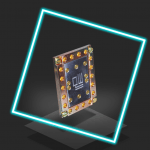Fujitsu Uses Quantum-Inspired Algorithm to Tackle Space Waste

(ComputerWeekly) The University of Glasgow has worked with Fujitsu and satellite service and sustainability firm Astroscale on a quantum-inspired project to remove space debris.
The project, carried out as part of the UK Space Agency grant, Advancing research into space surveillance and tracking, was developed over six months. It makes use of Artificial Neural Network (ANN)-based rapid trajectory design algorithms, developed by the University of Glasgow, alongside Fujitsu’s Digital Annealer and Quantum Inspired Optimisation Services to solve some of the main optimisation problems associated with ADR (Active Debris Removal) mission planning design.
There are 2,350 non-working satellites currently in orbit, and more than 28,000 pieces of debris being tracked by Space Surveillance networks.
By carefully deciding which debris is collected and when, Fujitsu said the quantum-inspired system, powered by Digital Annealer, optimises the mission plan to determine the minimum-fuel and minimum-time required to bring inoperable spacecrafts or satellites safely back to the disposal orbit.
Jacob Geer, head of space surveillance and tracking at the UK Space Agency, said: “Monitoring hazardous space objects is vital for the protection of services we all rely on – from communications devices to satellite navigation. This project is one of the first examples of Quantum-inspired computing working with artificial intelligence to solve the problems space debris causes.























